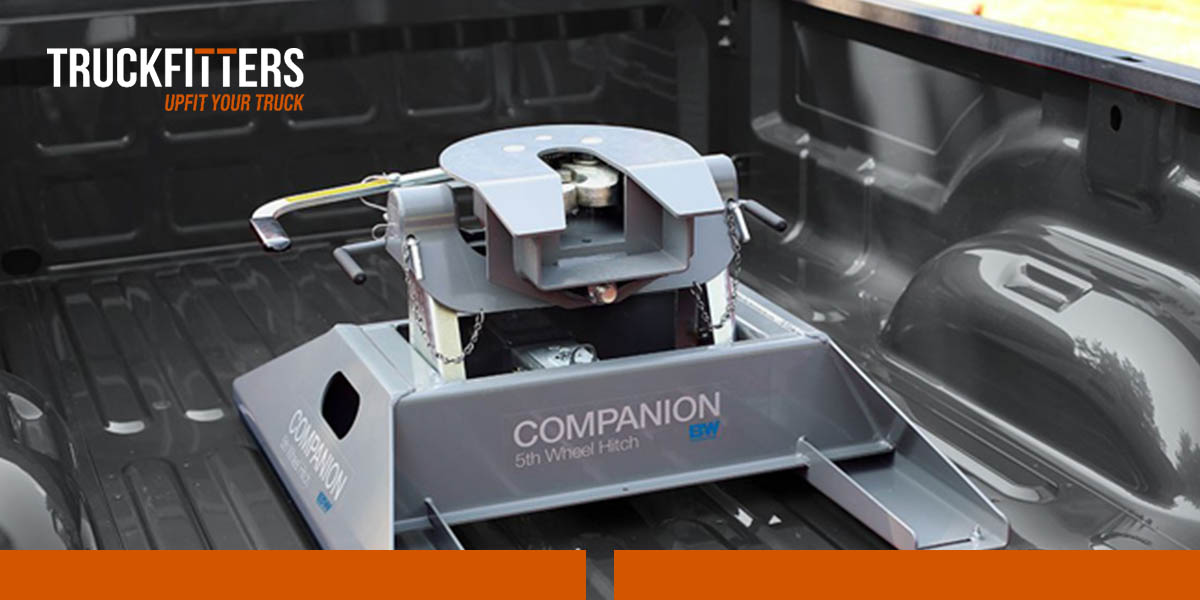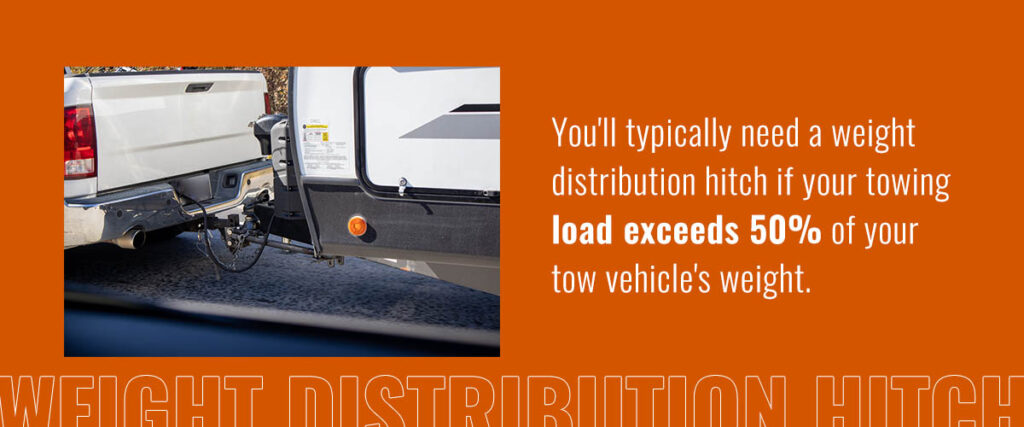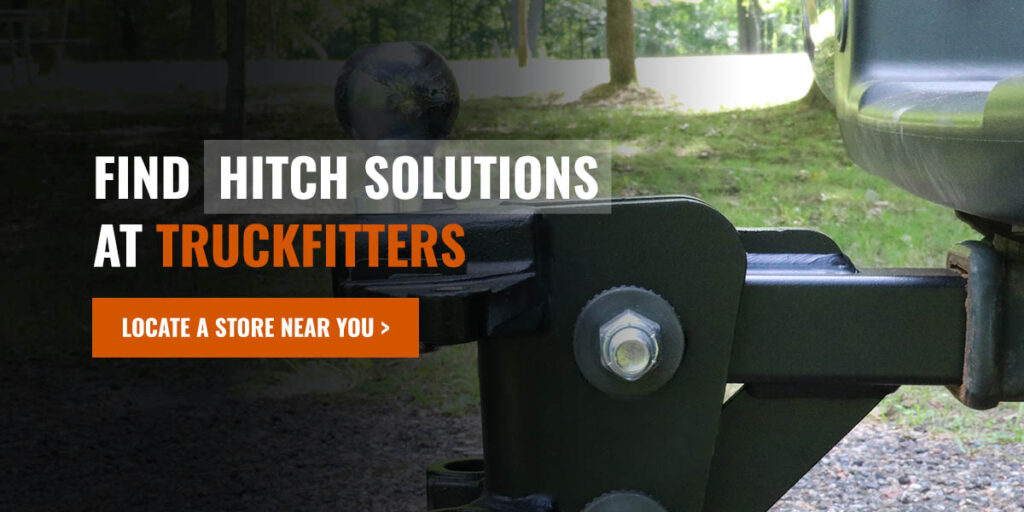

Whether you’re hauling a trailer, transporting bikes for vacation or towing a vehicle, you’ll need a hitch. A trailer hitch is a device you can attach to your truck to help you tow something. People typically use hitches for trailers to transport items, other vehicles, boats and machinery. Their usefulness isn’t limited to towing, though. You can also connect various accessories like bike racks, snow plows and winches to a hitch.
This multi-purpose tool is a great way to level up your truck, accomplish more and make life easier. In this guide, you’ll learn about the different types of hitches and how to choose the best one for your truck.
You can attach various types of hitches to your truck. We’ve listed the five main types of hitches below.
Receiver hitches — also known as tow bars or tow hitches — are the most common type of hitch you’ll find because they work for most use cases and vehicles. They can tow trailers, camper vans, RVs and boats. The base of a receiver hitch is a receiver pipe, which you mount to your truck or bumper. Then, you attach a hitch accessory to the pipe, depending on what you need to tow. Most receiver hitches come with a ball mount that the trailer attaches to.
A few examples of receiver hitches include:
Receiver hitches come in five different classes that indicate their towing capacity, which refers to how much gross trailer weight (GTW) they can carry.
If you plan on carrying a heavy trailer or vehicle, you may want to consider a weight distribution hitch. This hitch does just as its name suggests — it connects to a receiver hitch to spread the weight across the tow vehicle and the trailer. The primary purpose of this type of hitch is to reduce the stress on the hitch and bumper and make towing heavier vehicles safer. You’ll typically need one of these hitches if your towing load exceeds 50% of your tow vehicle’s weight.

Another hitch for heavy loads is a 5th-wheel hitch. You’ll need a pickup truck for a 5th-wheel hitch, as it mounts into the truck bed. A 5th-wheel hitch takes up a lot of room but can often tow up to 30,000 pounds. These hitches usually tow 5th-wheel RVs and large camper vans as they distribute the weight and improve stability.
A gooseneck hitch is similar to a 5th-wheel hitch since it also carries heavier loads — sometimes over 30,000 pounds — and attaches to the inside of pickup truck beds. The main difference between gooseneck and 5th-wheel hitches is that gooseneck hitches are smaller and feature a ball and coupler connection. They’re often used for commercial towing, such as for livestock trailers, flatbed trailers and heavy equipment.
A pintle hitch is the strongest type of hitch available. It can tow up to 60,000 pounds. This hitch looks different from most hitches as it has a claw-like connector that hooks around a specialized lunette ring on the trailer.
Pintle hitches work well on heavy-duty vehicles and trailers, often in military, construction, agriculture and other commercial applications. Their main advantage is greater stability on uneven terrain.
If you’re trying to select the best trailer hitch type for your truck, keep these points in mind:
There’s a hitch for every truck and purpose out there — it’s just about narrowing down the specs and selecting one that lines up with your towing needs.
If you need a hitch for your truck, look no further than Truckfitters. We’re passionate about upfitting trucks, and we stock a wide range of hitches from top brands, including B&W Trailer Hitches and CURT Manufacturing. We know how important your truck is to you, so our team of experts is happy to work with you to find the best hitch for your needs.
We pride ourselves on our customer service and efficiency, so we’re confident we can fit your truck with the right hitch as quickly as possible. Head down to one of our stores in Texas, Alabama, California, Florida, Indiana, Kentucky, North Carolina or Oklahoma today to check out our selection in person. Feel free to reach out to us with any questions.
